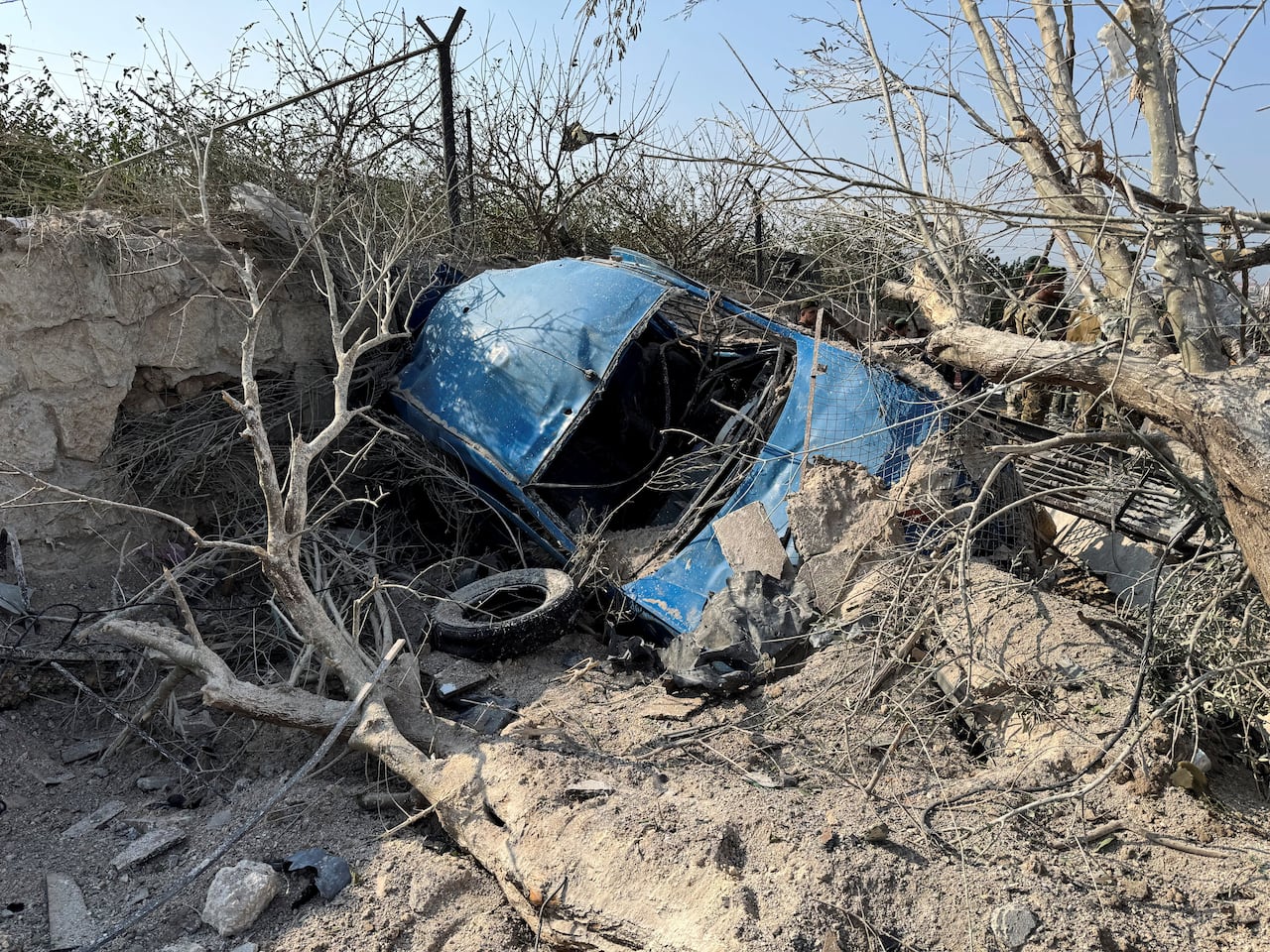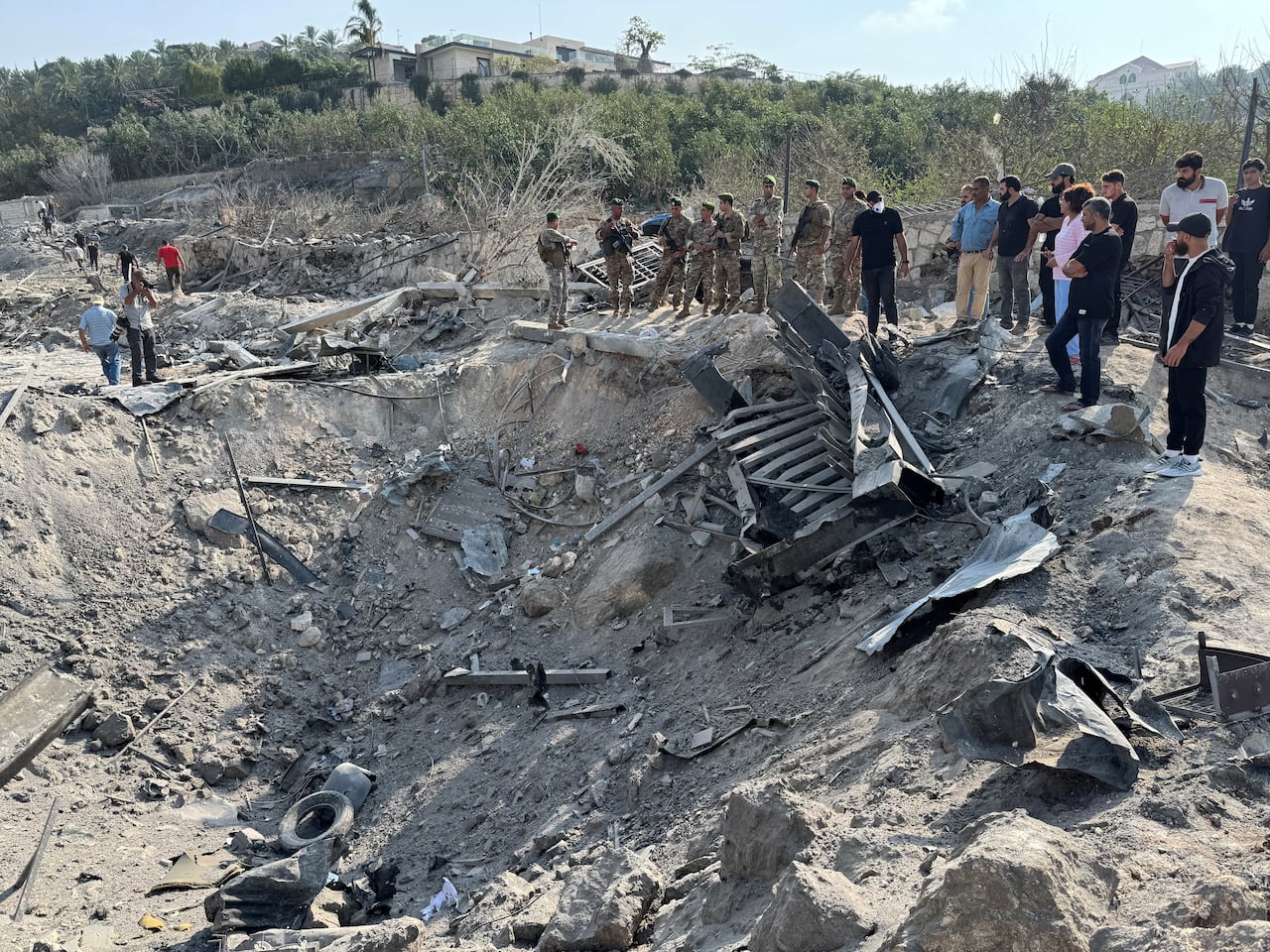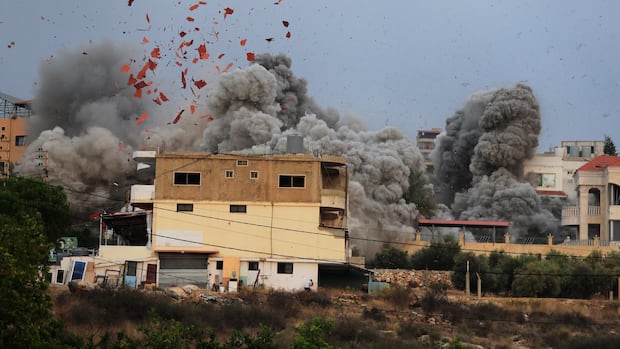Israeli jets struck several towns in southern Lebanon on Thursday, marking an escalation in their near-daily strikes on the country.
The airstrikes came despite a ceasefire from November 2024, and hours after Hezbollah urged the Lebanese government not to enter negotiations with Israel.
Residents in Tayba, Tayr Debba and Aita al-Jabal were warned by Israeli Arabic spokesperson Avichay Adraee to flee 500 metres from the residential buildings they are targeting, which they say have been used by Hezbollah. Warnings were later issued for the towns of Zawtar al-Sharqiyah and Kfar Dounin.
Lebanon’s civil defence helped people evacuate the areas, the Lebanese state news agency said. While most residents evacuated the threatened areas ahead of the strikes, Lebanon’s health ministry reported one person wounded. Earlier Israeli strikes on Thursday killed one person, according to the ministry.
The Israeli military said it targeted military infrastructure for Hezbollah in those areas, including “weapons storage facilities … constructed in the centre of civilian-populated areas.” It accused the militant group of rebuilding its capabilities almost a year after the U.S.-brokered ceasefire went into effect.
Hezbollah has not fired on Israel since the truce deal came into force last year.

More than 270 people have been killed and around 850 have been wounded by Israeli military actions since the ceasefire took effect, according to Lebanon’s health ministry. As of Oct. 9, the U.N. human rights office had verified that 107 of those killed were civilians or noncombatants, said spokesperson Thameen Al-Kheetan.
“Israel will continue to defend all of its borders, and we continue also to insist on the full enforcement of the ceasefire agreement between Lebanon and Israel,” Israeli government spokesperson Shosh Bedrosian told reporters on Thursday.
The strikes on Thursday destroyed an ironworks business in the southern Lebanese town of Abbasiyeh.
“This shop was supporting five to six households, overall five to six homes,” said Ahmad al-Kayyal, who owned the business.
“Brother, what does a blacksmith do? For heaven’s sake: chairs, tables, doors, windows, railings. What does he make? That’s the blacksmith’s job.”
Every time Lebanon expresses its openness to peaceful negotiations … Israel intensifies its aggression.– Lebanese President Joseph Aoun
Fears have been mounting in Lebanon that Israel could resume a full-blown aerial bombing campaign, particularly after Israeli leaders warned they would take action against Hezbollah if Lebanon did not step up efforts to disarm the group.
“We are in a very dangerous situation. If things keep heading this way … then all hope is lost,” said Farid Nahnouh, mayor of Tayr Debba.
Lebanon open to talks
The strikes came as Lebanese Prime Minister Nawaf Salam and his government met in Beirut to follow up on a plan drafted by the Lebanese military to disarm Hezbollah and other non-state armed groups in the country.
Following the meeting, Information Minister Paul Morcos said the cabinet “commended the progress [the army] has made… despite continued obstacles, foremost among which is the continuation of Israeli hostilities.”
Lebanese President Joseph Aoun has been critical of Israel’s strikes and military presence on five hilltop points on Lebanese territory. Last week, Aoun instructed the army to confront any Israeli incursion into southern Lebanon after Israeli forces crossed the border overnight and killed a municipal employee.
“Every time Lebanon expresses its openness to peaceful negotiations … Israel intensifies its aggression,” Aoun said in a statement after Thursday’s strikes.
“Nearly a year has passed since the ceasefire came into effect, and during that time, Israel has spared no effort to demonstrate its rejection of any negotiated settlement between the two countries,” he said.

Aoun has said he is open to negotiations with Israel to end the tensions, something which Hezbollah is against.
The militant group, which also has a political wing, said before the strikes that they had “a legitimate right to resist [Israeli] occupation,” adding that it would support the Lebanese army.
Hezbollah also said that, while Lebanon was bound by a ceasefire, it was not obligated to be drawn into political negotiations with Israel.
The powerful group’s military capabilities were severely damaged in Israel’s intense air campaign over Lebanon in 2024, but Hezbollah has yet to disarm and its leader Sheikh Naim Qassem has said that the group will be ready to fight no matter how limited their capabilities might be.
The army has said it could clear all of southern Lebanon of arms outside of state control by the end of the year. Two senior Lebanese security officials told Reuters hours before Thursday’s heavy strikes that their troops were making swifter progress every month on disarmament.
Also Thursday, the U.S. Treasury announced a new set of sanctions that it said target “financial operatives who oversee the movement of funds from Iran” to Hezbollah.
This includes, through licensed and unlicensed money exchanges, shops that the U.S. said “fail to conduct adequate screening on their customers” and allow Hezbollah “to take advantage of Lebanon’s largely cash-based economy to launder illicit money.”

Both sides have accused each other of violating the ceasefire, which nominally ended the latest Israel-Hezbollah war last November. The conflict started after the Oct. 7, 2023, Hamas-led attack on Israel that triggered the offensive in Gaza.
Hezbollah began firing rockets into northern Israel in support of Hamas and the Palestinians, prompting Israeli airstrikes and artillery shelling in return. The low-level exchanges escalated into full-scale war in September 2024.





